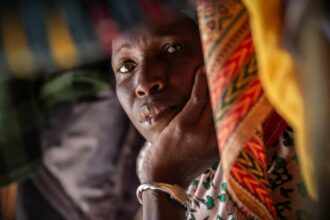An unfortunate event occurred last Saturday in Germany, involving the death of Lamin Touray, a 46-year-old man from Gambia, during an encounter with the police. Authorities in Nienburg disclosed that Touray had menaced his girlfriend with a knife, leading her to escape and seek police intervention.
In their statement on Facebook, the Nienburg police detailed how Touray, upon their arrival, ignored police directives and attacked them with a knife. The situation escalated, resulting in Touray being shot multiple times, ultimately leading to his death.
The confrontation also resulted in serious injuries to a policewoman and a police dog, with the officer later being flown to a hospital. Her condition was eventually stabilized and deemed not life-threatening.

The police effort to subdue Touray was lengthy, with witnesses reporting multiple gunshots during the altercation.
The police’s decision to shoot Touray, especially given his armed status, has been critically received by the Gambian community in Germany. They demand an inquiry into the event, criticizing the police for what they see as an excessive use of force. They argue for alternative measures that could have been employed to de-escalate the situation without fatal consequences, highlighting a need for improved training in non-lethal methods of dealing with armed suspects.
This incident underscores the broader issue of police use of force, especially in situations involving migrants, and ignites a debate on how such encounters can be managed more effectively to prevent loss of life. Potential preventive measures could include enhanced training for police officers in de-escalation techniques and the use of non-lethal tools, fostering better understanding and communication between the police and migrant communities, and implementing more rigorous protocols for assessing and responding to threats. This tragic event calls for a reflective examination of police practices and community relations to identify and implement strategies that ensure the safety and rights of all individuals are upheld.























